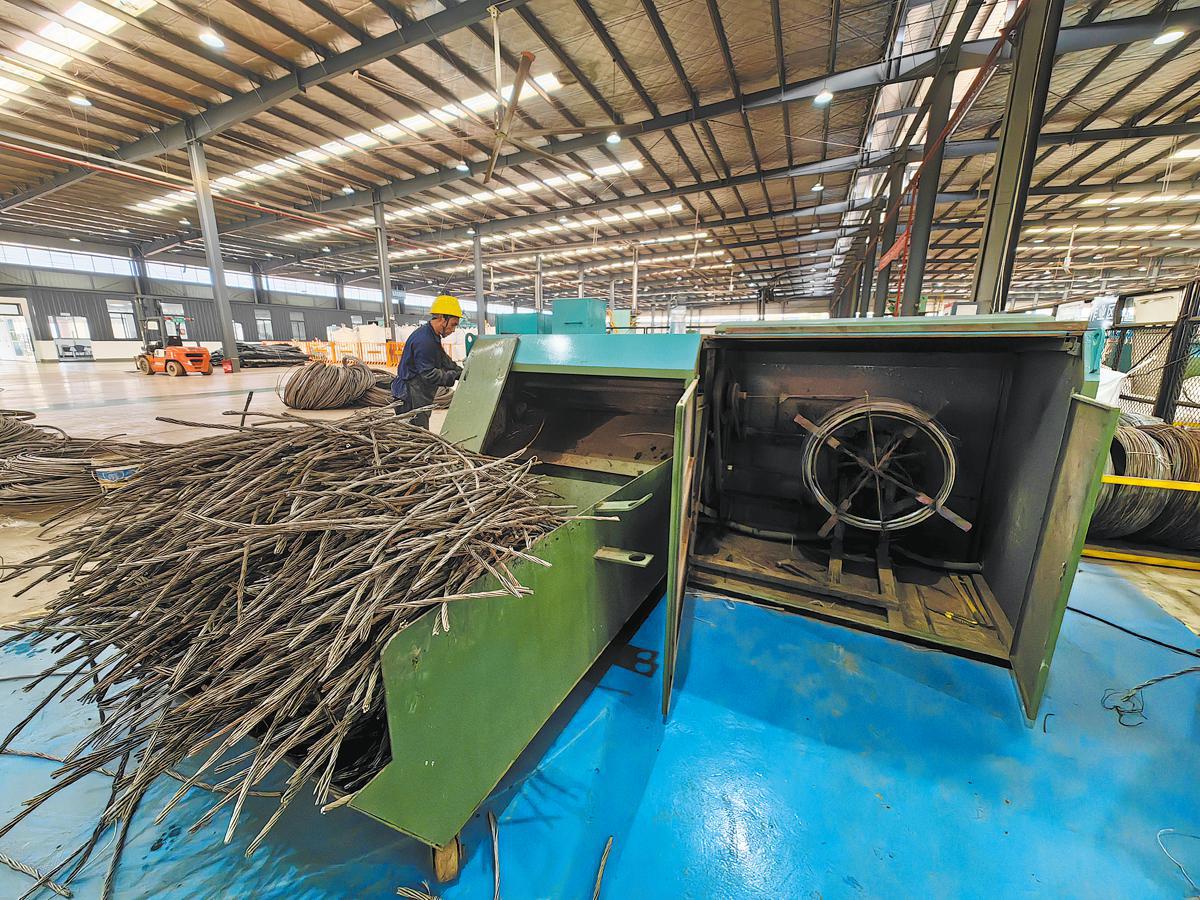State Grid's recycling centers forge sustainable path
Utility company's innovative solutions bring environmental, economic benefits, Hou Liqiang reports from Chongqing


The center has also attached great importance to energy-meter recycling, focusing on the development of advanced intelligent equipment for efficient dismantling processes, he added.
Although energy meters may look similar externally, they exhibit significant variations in internal structures, notably in the number of screws used, presenting a substantial hurdle to automated dismantling.
At the very beginning, the center hired workers to disassemble the meters using screwdrivers, but this approach proved to be highly inefficient, Wang recalled. Even with the introduction of pneumatic screwdrivers, the efficiency level remained unacceptably low.
At the end of last year, a pivotal moment unfolded as the collaborative endeavors of the center and a robotic arm manufacturer yielded results through integrating concurrent experimentation and design.
"Using a robotic arm acquired from the manufacturer, we jointly conducted experiments on more than 100 varieties of energy meters to explore potential solutions for enhancing efficiency in the manufacturer's workshop," he said.
Equipped with multiple electric screwdrivers that can operate concurrently, this robotic arm features an intelligent camera capable of automatically taking photos, identifying, matching models and carrying out tasks based on programmed instructions for different models.
"The robotic arm greatly enhanced the efficiency. It can dismantle an energy meter in just 30 seconds. Previously, a single worker could only dismantle about 100 in a day," Wang said.
In a statement from the center, it stressed the high environmental and economic benefits brought about by its recycling initiative.
It said the energy consumption for recycled aluminum is just 4.5 percent in comparison to primary aluminum. As for recycled copper, it only consumes a mere 18 percent of the energy needed for producing primary copper.
According to the center, in the first year of its operation, it processed 10,091 tons of solid waste, saving 38.77 million kilowatt-hours of energy, reducing carbon dioxide emissions by 86,500 tons, and generating an output value of 137 million yuan.
In the past, obsolete electrical equipment was primarily auctioned off to recycling companies, Wang said. The centralized processing at the center has resulted in a significant 30 percent boost in the value of the waste.
State Grid has set up similar recycling centers in provinces including Shandong, Jiangsu, Hubei and Henan.
Chen Shicai, an executive of a company specializing in collecting transformer oil for lubricating oil production, said the centers have created considerable environmental and economic value.
Before the center's establishment, his company, Chongqing Fengsheng Petrochemical Corporation, needed to sign recycling contracts with grassroots power supply companies and then collect waste oil only when it became available.
His company previously had to dispatch tanker trucks to collect small amounts of transformer oil. This usually led to substantial transportation expenses, especially considering that the transportation of the substance as a hazardous waste is tightly regulated, he said.
Chen said the abandoned transformers were typically kept outdoors, substantially heightening the likelihood of contaminants like sand infiltrating the transformer oil during the recovery process.
He added that the center has significantly boosted the annual amount of transformer oil his company can recover, scaling up from a mere 20 to 30 tons to an impressive 400 tons.
Despite having to purchase waste transformer oil from the center at elevated prices, the company has experienced a notable improvement in cost efficiency due to reduced transportation and purification expenses, as well as the increased scale of operations, Chen said.
"The reduced frequency of transportation has diminished the probability of environmental pollution incidents occurring during transit," he added.























